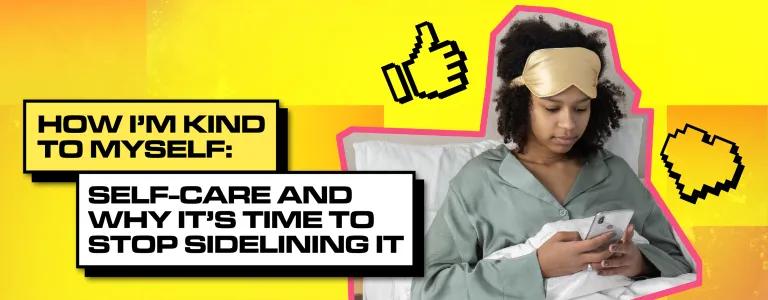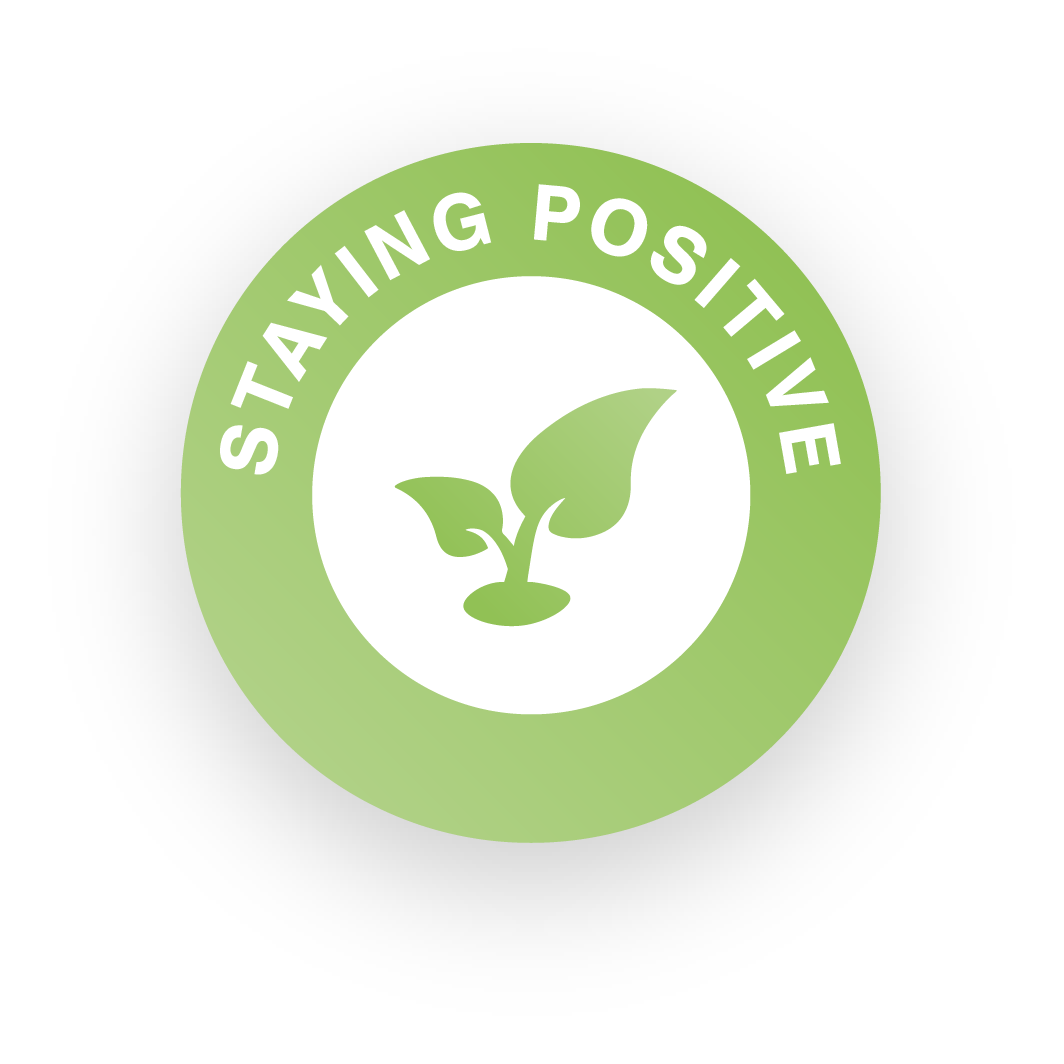
How I’m Kind To Myself: Self-care
Include this article in your Skills Builder Journal. It could help you develop... 

Writers’ Club Natalia talks top tips on taking care of yourself…
The ‘be kind to others’ mantra is something we’ve been reminded of constantly since our Primary School days but how often do we remember to be kind to ourselves?
I don’t know about you but, as a young person, I feel like everyone expects a million different things from us all at the same time: 100% attendance at school or college, assignments handed in on time, revision at the weekends, A’s and A*’s, a fully formed idea of exactly what we want to do when we leave school and how we’re going to get there, a full set of extra-curriculars, sports clubs, music lessons, societies, ambition, good physical and mental health, an active social life and time left over after all of that to care for family members and siblings. It’s all a bit relentless. We’re told to stop and take breaks, get some rest, have a bath but the world we live in glorifies this never-stopping, over-working mentality so it’s no wonder that we do too. There are never enough hours in the day to get everything on our to-do lists done anyway so we permanently side-line self-care. After all, it’s not that essential, right?
That’s myth number one. Self-care is absolutely essential. We wish it wasn’t, but it is so important. Research has shown that active and conscious self-care decisions can promote positive physical and mental health outcomes including higher self-esteem and better equip you to manage stress and setbacks. Self-care is the foundation, not the roof: everything else is built on it and without the conscious decision to look after your physical and mental health, it can be harder to concentrate, manage your workload, feel good about yourself, and feel optimistic about the future.
While we’re here, let’s clear up some other common myths about self-care. Secondly, self-care, self-compassion, looking after yourself – whatever you want to call it – is not equal to self-indulgence or selfishness. Self-care means taking care of yourself so that you can be healthy and well and do all things you need and want to accomplish in a day. Self -care is definitely not selfish.

Thirdly, it also shouldn’t be just a one-time experience. Looking after yourself is an ongoing practice in building resilience to face hardships and in preventing burnout. And lastly, self-care doesn’t have to be time-consuming. Doing little things for yourself each day can go a long way in helping you to feel positive.
Honestly, we could all probably do a little bit more in the way of self-kindness. Personally, I know I’m rubbish at prioritising my mental and physical health over schoolwork and other commitments; always leaving it to the bottom of the to do list. But this just isn’t sustainable. The best piece of advice anyone gave me was to treat self-care as your 10th GCSE or your 4th A-level – you’d make time for your chemistry homework or English revision, so you equally need to make time for yourself too.
But that’s so much easier said than done. How do we do that? I keep talking about this mystical ‘self-care’ and all of its benefits but what actually is it? How can we actually and actively be kind to ourselves? Some people know exactly how they relax and switch off and show themselves kindness but if you’re anything like me, sometimes you need a bit of inspiration. Anna Freud have put together a great list of self-care suggestions, ranging from dance to day trips to daydreaming. Definitely check them out.
Other places recommend a number of different things. Self-care for you could be reading a book, watching a movie, going for a walk with your dog, bullet journaling, taking time away from your phone, listening to music or learning a new skill. It could also just be doing nothing. It took me a long time to work out how I could best show myself kindness, but I eventually found that what worked for me was doing absolutely nothing. Blanket, sofa, Netflix and I’m happy.
Saying that, self-care sometimes isn’t tangible. It’s not always Netflix or face masks or ice cream – although these can form an important part of it. Self-care is sometimes as simple as saying no. It’s taking breaks and asking for what you need. It’s setting boundaries and expectations of others for your availability and capacity and surrounding yourself with people who will be okay when those availabilities and capacities change. My friends know that when I get tired or need space mentally, I come off of social media for a bit and so I’ll be much slower at replying to their messages. Self-care can also be talking to someone when you feel low and not beating yourself when you get tired or overwhelmed, aiming to get a full night’s sleep, and doing those things you enjoy: those things that often get pushed to the bottom of your to-do list like ringing that friend you haven’t spoken to in ages for a chat or baking a cake.
The point is, there isn’t really a secret to being kind to yourself. It’s whatever works for you and whatever brings you joy. If standing in front of your bathroom mirror each morning and repeating affirmations to yourself makes you feel good, go for it! If it’s remembering to forgive yourself or writing down five things you’re grateful for each week helps you to think positively, commit to it! No matter how you do it, self-kindness matters. The world can be a really challenging place sometimes and we are all doing the best that we can. You deserve kindness. Tell yourself that from time to time.




